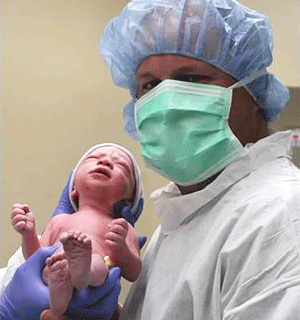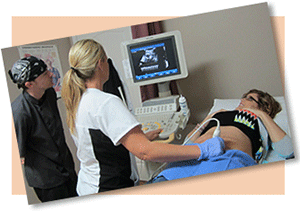
Fathers and Pregnancy Pregnancy lasts around forty weeks, which is equivalent to nine months. These nine months of pregnancy are split up into three 3-month intervals called trimesters. The due date provided by your partner’s doctor is just an estimate of when the baby might be born. Throughout the first trimester, most women will require more rest. Women at the beginning of pregnancy may also experience symptoms of nausea and vomiting. Even though it’s often called “morning sickness,” these symptoms can happen at anytime – day or night. For the majority of women, they will feel the best during the second trimester of pregnancy (weeks 14-28). As the woman’s body gets used to pregnancy, she generally starts to feel physically better. Her energy levels improve and the morning sickness will normally go away. While in the third trimester of pregnancy (weeks 28-40), your spouse can experience some discomfort while the baby grows larger and her body prepares for birthing. She could have difficulty sleeping, walking quickly and carrying out regular tasks. If the woman is comfortable enough to have sexual contact/intercourse during pregnancy, it is medically appropriate, unless otherwise advised by Dr. Harris. It is usually beneficial for you to attend a few of your partner’s prenatal visits. At an early visit, both of you will be questioned regarding your personal and family health histories. Should you have a profound family history of a particular disease, you could have a gene for the disease which could be transferred to your baby. Make sure that your partner is aware your history if you’re unable to be there. Your partner could undergo these tests and exams during the first visit:
All women who are pregnant will be tested for human immunodeficiency virus (HIV) and syphilis. Many women will also be given additional routine assessments for other sexually transmitted diseases. The majority of women get an ultrasound examination at around 18-20 weeks in the pregnancy. This exam offers an idea of the actual age of the fetus and verifies the baby’s development. It may also be possible to discover the sex of baby. Later prenatal care visits could include these tests and exams:
You can assist in preparing for labor and delivery by doing the following:
|
||
 |
||
 |
||